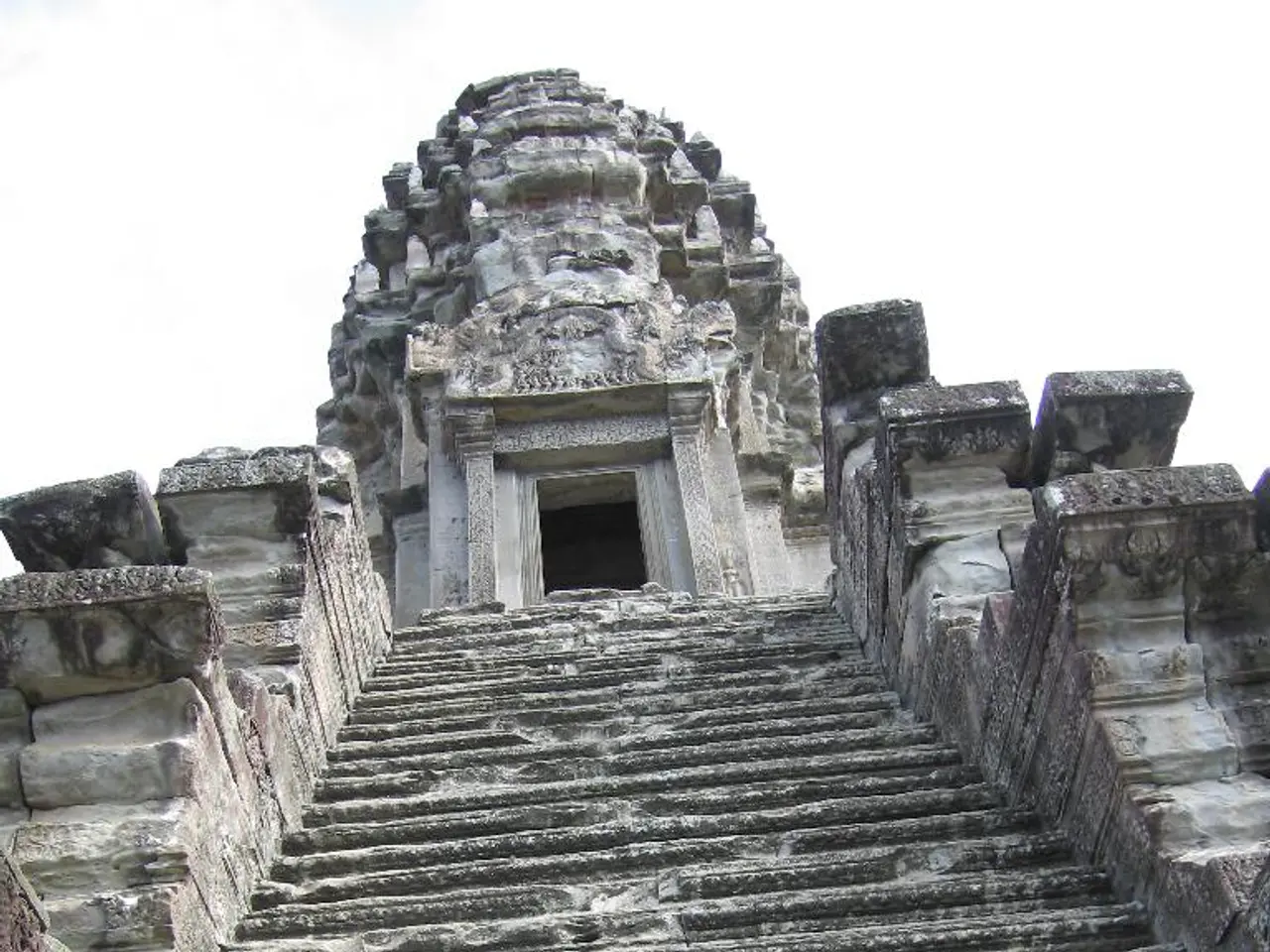Snapchat's Seven Wonders Series Transforms Traditional Educational TV through Augmented Reality
In an ambitious move to democratize learning and make global heritage accessible, Snapchat has partnered with SandStone Global Productions and historian Bettany Hughes to create an AR-enhanced TV series titled "Seven Wonders of the Ancient World." Premiering on Channel 5 UK, this three-part docuseries is revolutionising the way we learn about history.
The series integrates AR technology, accessible via on-screen QR codes, allowing viewers to virtually explore detailed 3D reconstructions of famous ancient monuments like the Great Pyramid of Giza and the Hanging Gardens of Babylon from the comfort of their homes. This innovative approach enriches the learning experience, transcending traditional documentary formats.
By bridging the gap between viewers and distant historical sites, the AR element encourages active participation and exploration rather than passive viewing, supporting a deeper connection and comprehension of historical contexts. It also broadens the audience demographic for educational content, leveraging a popular social app platform and modern digital storytelling techniques.
Bettany Hughes leads the series, providing a curiosity-driven narrative that blends intellectual rigor and accessible storytelling. Viewers can walk around the Temple of Artemis or peer into the tomb chambers of Giza, all projected onto their smartphone screens. Complex stories about geometry, urban design, and cultural exchange are presented in three dimensions for learners to manipulate scale and perspective.
AR interactivity shifts viewers from passive observation to virtual exploration, enhancing engagement and retention. The series aims to extend Snapchat's reach to older, education-focused audiences, potentially attracting history enthusiasts, lifelong learners, and families. As AR glasses become more common, similar partnerships could transport students to various historical locations or recreate pivotal moments in world history.
The production crews travelled to Greece, Egypt, and Turkey to document modern remains for the AR project. Historians, 3D artists, and archaeologists worked together to ensure every detail is faithfully recreated. Educators and parents find that AR cements retention more effectively than conventional video.
The tourism industry may also benefit from AR programming, allowing prospective travelers to preview destinations virtually and create informed itineraries. As we move forward, it's clear that augmented reality has a transformative role in education, providing immersive, interactive experiences that bring historical content to life.
The TV series "Seven Wonders of the Ancient World," created by Snapchat, SandStone Global Productions, and historian Bettany Hughes, is revolutionizing education-and-self-development by integrating AR technology. This transformation enables users to explore home-and-garden-like replicas of ancient structures like the Great Pyramid of Giza and the Hanging Gardens of Babylon through their devices. With AR, learning becomes an active, engaging process, promoting sustainable-living for lifelong learners interested in history and technology. Furthermore, online-education platforms may benefit from similar collaborations, making diverse, immersive content accessible to all.




